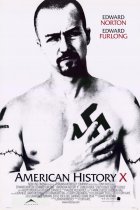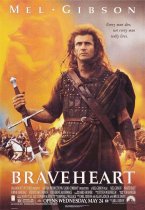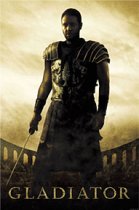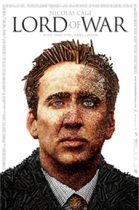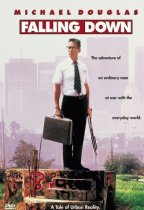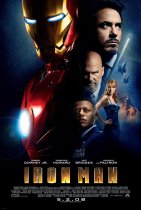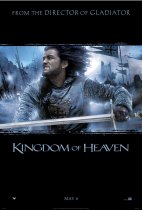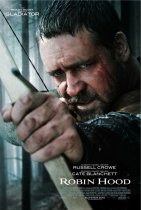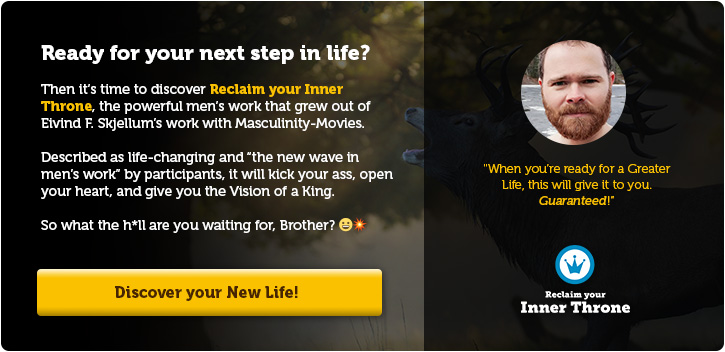A History of Violence (2005)
Synopsis
Tom Stall is a gentle and kind-hearted family man, loved by his community and his customers at Stall’s diner. But Tom hides a dark secret. He used to be Joey, a criminal and a murderer, and as Tom soon will find, the past has a tendency to catch up with you, if you don’t deal with it head on.
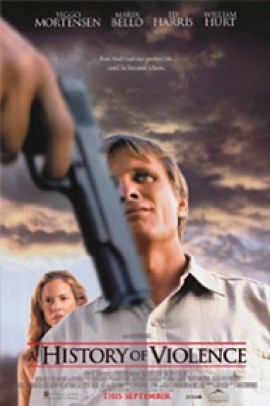
| Genre | Drama |
| Production year | 2005 |
| Director | David Cronenberg |
| Male actors | Viggo Mortensen, William Hurt, Ed Harris |
Integrating the shadow
by Eivind Figenschau Skjellum
Tom Stall is an upstanding citizen in his local community. He is a loving father of two, a householder, and the head honcho at local hangout Stall’s Diner. He is a cornerstone in his community; a stone that is about to be turned. For Tom used to be Joey, a gangster and a murderer.
A History of Violence is a modern spin on Jekyll and Hyde and it poses many interesting questions about living a fairly normal, pleasant family life – even while embracing our dark side.
The light and dark of Tom and Joey
What I want to know as I stand face to face with Tom Stall is: does he know about Joey? Or did he actually “die” out in the desert as Tom suggests to his wife Edie. Director David Cronenberg suggests the former in the DVD commentary, but Viggo Mortensen’s downplayed portrayal of the personality conflict shows it as being more of an unconscious sliding in and out of two different personalities, oblivious to each other.
If Tom really knew about Joey, he would’ve been playing games of hide and seek with his own and his family’s lives on the line throughout the entire story. This interpretation has him robbing his family of the truth for fear that it may confront him with his past and break the family apart, all the while knowing he is a sinister murderer behind the veils of rural loveliness.
The human mind doesn’t work that way. Tom couldn’t be living such a sweet and loving family life if he was constantly totally aware of his past as a gangster and murderer. He could have if he had first accepted society’s, and particularly his family’s, judgment for his actions. But as it is, he would never be in integrity with himself and his role as a family man would be undermined.
There is just no way he could look into the eyes of his fragile, darling daughter without fearing his dark side. No way he could serve as an authority figure to his son without being worried that he would tip over into his days of uncontrolled violence. It would create enormous inner conflict in him, and Tom doesn’t seem like a conflicted man.
As I see it, the only sensible interpretation is that Joey is part of Tom, but only subconsciously. Joey is buried deep in his psyche, and is only a faint whisper on the desert winds that he thinks he left behind. We can only wonder what kind of strange magic he must’ve gone through out there for those years. Maybe he went to stay with indians, being healed by shamans, sweat lodging, vision questing etc. Regardless of how total the transformation in the desert was, karma doesn’t forget, and this is a key learning of the movie.
There can be no question that Joey is a wicked DD1 man. Tom, however, is a gentle and loving DD2 man and together with Edie, they have a sweet, sexy, loving relationship. Tom is quite the family man, nurturing and in touch with both his masculine and feminine sides.
Edie is strong and directed, yet still very feminine. But the political correctness and reversal of gender roles common for modern relationships seems refreshingly absent, which is probably why they still seem so much in love with each other. So this is a good relationship, perhaps even flirting with great on rare occasions.
There’s an artfully done sex scene where Tom and Edit roleplay teenagers trying to make love without being caught. Edie is quite the goddess, but Tom seems to be holding back just a little bit, not quite ready to take it all the way. And the sinister, unromantic lighting suggests something – or someone – is lurking under the surface.
This holding back of Joey is symbolic for what many modern men do. We hold back our fierceness while making love to our partner, and leave her unravished. Satisfied, but not yet completely opened to bliss.
Longing for Cro Magnon
The unveiling of Joey starts when Tom ends up the local hero after defending his diner and the people who work for him from two heartless, fearful outcasts looking for money. Men with no purpose, no conscience and no balls to face up to themselves. Some would describe them as masculine, and they are – but it’s the lowest form of masculine available to mankind, and not the only form which is what feminism seems to think.
It’s very interesting to note that Tom seems pretty ashamed about what he has done. Yet his wife and son Jack are inspired by it: «Are you as sick about hearing about me as I am?,» Tom asks Edie.
«In a way, I kind of like it,» she replies, clearly demonstrating that her husband’s capacity to defend her family against bad men is incredibly sexy to her. J
ack, on the other hand, feels inspired by the raw power of his father’s masculine capacity to kill in service of those he loves.
Jack and Edie display very primal responses to our Darwinian past, and we must embrace this as part of our humanity lest we suppress it and be controlled by it.
There is a darkness in the human psyche that, if harnessed, can be used for much good in the world. Modern men are often characterized by a sort of castration from this power, which makes them less trustworthy in the eyes of both men and women.
It is every man’s responsibility to step into the intensity of his own aggressive potential and learn to master it, be it through martial arts, extreme sports, relationship aikido or a skilfully navigated career. No killing necessary! Society’s fear of authentic masculine aggression – which is both grounded, heartfelt and spiritual (a true gift!) – has forced modern men’s authentic self-expression into hiding.
From the dark corners of our mind it festers and grows, eating us up from the inside – unless activated in positive and useful ways. We don’t serve anyone by denying our true nature.
Psychosis, REAL violence and depression are created in such ways. In fact, I believe it’s a main cause of crime.
The gifts and sins of Joey
As the story develops and mobsters from Joey’s past arrive from Philadelphia, hellbent on setting things straight, Tom starts changing. More and more, we can see Joey come through – by virtue of necessity.
Tom can’t defend his family, but Joey can. As Tom yields more and more to Joey, his son Jack starts questioning if he has any idea who his father really is, and becomes extremely conflicted in his perception of him.
There is the matter of his identity, perhaps even his soul, to consider. And the safe father who he knew and loved has become someone else – a man who fascinates him deeply, on a primal level, but who also scares him out of his wit.
Their developing dynamic has direct implications on Jack’s relationship to high-school bully Bobby who is a pain in Jack’s ass. Bobby is clearly fearful of Jack’s superior intelligence, and when a baseball game fluke has him temporarily outmatch Bobby’s sporting skills as well, Bobby has nothing setting him above Jack in the masculine power-hierarchy anymore – except for the intimidation factor. So he uses that for all that it’s worth.
But with Jack’s family now fighting for survival and his father’s evident capacity to splatter people’s brains all over the floor, things are looking a bit different for him. The extreme circumstances free up Jack’s latent masculine power and in the end, he lets Bobby have it and pummels him and his friend.
This is obviously not a mature way of dealing with conflict, but given Jack’s situation and Bobby’s character, it gives rise to a very valid question – is it really the worst thing that could happen?
This scene gives us the opportunity to pinpoint two key themes of the movie:
- At what point does violence become a necessity
and - What amount of violence is within a man’s rights in defense of his honor and his loved ones.
In the first confrontation between Edie and Joey, Edie – having stepped up to protect a family in which Joey rather than Tom is the father of the house – slaps him with all her might and screams “damn you, Joey”.
Joey proceeds to assault her, and holds her towards the wall with obvious aggression. It first looks like it’s going to be a rape scene, but it quickly evolves into something much deeper and more nuanced.
What becomes clear is that Edie is willing to open up to even the darkness of Joey, and she even likes it. This shames her, but it brings up the question – could any of Joey’s qualities be transformed into gifts, in service of both his family and his wife?
Forgive me Father, for I have sinned
In the end, Tom, who is now equally Joey, returns with his hands tainted by family blood, having whacked both his brother and his useless henchmen back in Philly. The family awaits him, fully aware of their fathers Joey-ness. Tom has resurrected Joey, without losing himself in the process.
By whacking all his former mobster compadres, he his fulfilled part of Joey’s karma, and created a truckload new karma for his ever more integrated Tom-Joey identity.
He has been found out, the past has caught up with him, and his face reveals he knows the consequences. He has nothing now; no honor, no integrity, no life to speak of. The entire town knows who he is. All that is left is the truth and the faint glimmer of hope that his family won’t reject him.
He enters the kitchen as the alpha man of the flock, but completely broken in every way that matters. The treachery he has committed is so vast that it’s almost inconceivable to his wife.
This scene is brilliantly acted out, and has Tom-Joey show extreme vulnerability. Sarah, his precious little daughter steps off her chair, picks up his plate and signals she wants her daddy back.
Conclusion
The History of Violence, the way I’ve chosen to interpret it, is a testament to the importance of integrating our dark side. Tom’s question is how he should integrate Joey in his life and still live as love in the world.
By extension, the larger question becomes how we as a society should integrate the dark masculine in our lives, in service of all.

